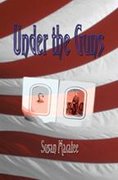I googled the Victorian Era just to see what I could find. (I didn’t put my search in quotes.) The first was History in Focus (http://www.history.ac.uk/ihr/Focus/Victorians/) the second was Wikipedia (http://en.wikipedia.org/wiki/Victorian_era).
Now I know a lot of writers don’t trust Wikipedia, but it’s been tested (not scientifically, but by librarians evaluating the two) against Britannica Online (http://www.britannica.com/) and has beaten it in terms of accuracy. Librarians, those stereotyped matrons with glasses and pencils in their buns, love it. Why? It’s fast, easy to navigate, and, as previously stated, more accurate than the premier encyclopedia, Britannica. It also is more readable for general audiences. (For the record, I don’t actually know any librarians with buns, or pencils in their hair for any reason. Glasses are different, but then nearly 150 million Americans wear glasses or contacts.)
Back to my search. The third site was no longer available, but the fourth was “History of Robots in the Victorian Era” (http://www.bigredhair.com/robots/). What’s this? Huh. Robots. Robots and Victorians? Interesting thought, that.
And I was sidetracked...
This site is a hoax, something intended to advertise a graphic novel about Boilerplate, the tin soldier. Still, it caught my attention and I began thinking…robots in the Victorian Era. Sure, it makes sense now, when I look back and realize that in the broader sense of the term, ‘robots’ could mean anything mechanical that does the work of a human or animal, but when I first saw the site, I was flabbergasted.
Wow, robots! Cool!
But in a time of Jules Verne and H.G. Wells why not? Science fiction was a new and fascinating genre that took us to the moon and deep into the center of the Earth. It let us think about time travel and what it’d be like to travel the solar system on a comet.
In Australia’s outback Ned Kelly used heavy armor to deflect bullets and continue his outlaw ways. Oh, it didn’t work, but he tried. In an era labeled as cold, asexual, and stifling, how can an outlaw wearing armor be boring? Stifling I can see, it must have been hot in that thing, but that’s about it. Stifling in a domineering way, in a can’t express myself way, no.
“At about dawn on Monday 28 June [1880] Ned Kelly emerged from the inn in his suit of armour. He marched on to the police firing his gun at them, while their bullets bounced off his armour. His lower limbs however were unprotected and he was shot twenty-eight times in the legs (sources vary, some saying six times).” (http://en.wikipedia.org/wiki/Ned_Kelly)
I’m going with 6 times – he survived, after all.
“In Robur the Conqueror (1886) Verne predicted the birth of heavier-than-air craft,” (http://www.kirjasto.sci.fi/verne.htm).
What do you think of happening in 1886? Do you think of heavier-than-air crafts? I don’t. Or, well, didn’t. So what happened in 1886 that had Jules Verne thinking that?
I didn’t know either, so I went to the History Channel website, got sidetracked with William Shatner on the homepage “How William Shatner Changed the World” (http://www.historychannel.com/space/), took the Weekly Quiz and went 3 for 5 with the stupid thing. I guessed on 4 out of 5, because I really did know that the first all-synthetic plastic was called Bakelite. Usually I’m much better at this, but the only thing I knew about Jesse Owens was what I remembered from an old movie I once saw about him. He’s also probably one of the only Olympians I can actually name. I still don’t know who Alf Landon was except that he was a presidential candidate in 1936 and Mr. Owens endorsed him on the radio. Thank you, quiz.
But my timeline!
In general, when I think of that time I think Wild West, Robber Barons, Colonial England, China’s diminished power, Russian revolutionaries (I have a serious Russia obsession), and the Statue of Liberty. I couldn’t tell you who the president was (Grover Cleveland was elected, Arthur Chester was leaving), that the element germanium was discovered (Clemens Wilder), or that the first Coca-Cola was introduced in Atlanta.
I don’t think robots. I don’t think mechanics. This was an era of steel ships, of bigger, better, heavier, faster, but Victorian + mechanical doesn’t = 4; it equals a lot of other things, but until this tangent, it wasn’t 4. The car for instance. Not a 20th century invention (my teachers were consistently wrong about this in both high school and college), and not pioneered by Henry Ford. The 1908 Model T wasn’t the first car in the world, merely the first one to be mass-produced; over 15,500,000 of them were sold in the United States alone (http://inventors.about.com/library/inventors/blford.htm).
“In 1885, German mechanical engineer, Karl Benz designed and built the world's first practical automobile to be powered by an internal-combustion engine. On January 29, 1886, Karl Benz received the first patent (DRP No. 37435) for a gas-fueled car” (http://inventors.about.com/library/inventors/blbenz.htm).
So if we could have a motorized bicycle, why not a car? And if we could have that, then why not robots? How cool would that have been? Robots helping around the house, doing everything we have them do today, but 120 years ago. Before WWI with Big Bertha, Germany’s mega-gun (not very practical), before the tank, before the airplane.
What if we did have robots then? Would we have managed to get to the moon sooner? Would we actually be living there now? Could Gene Roddenberry’s vision of our future with spaceships and traveling between the stars at faster than light speed have been realized by now? What about hover cars? Something I was promised when I was young – oh, we’ll have cars that drive in the sky by the year 2000; we’ll be vacationing on the moon like we do in Florida! Still waiting…
But what if?
Tuesday, March 07, 2006
Subscribe to:
Post Comments (Atom)









3 comments:
Wow! Love this post. Talk about showing the excitement of the times!
the BEST resources are primary and more and more of them are on the internet. The London Times, the NYTimes, Harpers The library of Congress too. ...fantastic resources everywhere on the net now.
And the best part of the newspapers is they give a sense of the time in all sorts of ways. Sure you get the news stories but even better are the advertisements for employment or for clothing.
If you want to get a sense of how different their sensibilities are from ours, you have to visit sites that are all about memento mori --memories of death. Here's one that's got photos of dead loved ones. (can be sort of disturbing for us. But it was such a part of their world!)
bugger. Sorry. That link didn't work. let me try http://thanatos.net/galleries/categories.php?cat_id=1
Post a Comment